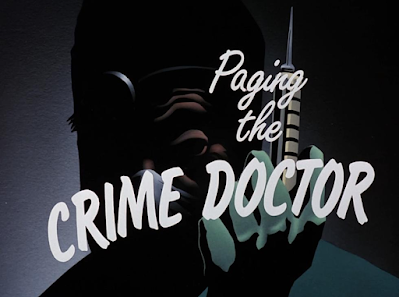It's not often that a month goes by without anything showing up here, but it is in fact one whole month since the last post. Part of it is that I've been spending most of my writing time at Dystopia.ink. But another part is that we haven't been at the theater very often in the last couple months because there hasn't been much to see. I don't know if it's just a dearth of releases caused by the writers' strike a couple years ago or if the new approach of "Marquee Arts" (the new face of the Michigan Theater non-profit) is to emphasize stuff that makes money (mainstream films) over the smaller returns of the art films that were the reason we joined up in the first place. I really hope the latter is just idle speculation. But tonight we made it back for a film I didn't have tremendously high hopes for, but which turned out to be a solid effort. In a way, my perspective was like the outlook of the main character, Agathe (Camille Rutherford) in Jane Austen Wrecked My Life.
Agathe is an introverted bookseller at Shakespeare and Company (an actual bookstore on the Left Bank in Paris) and an aspiring novelist. She also has no relationships with anyone but her sister and nephew whom she lives with and her best friend and co-worker, Félix (Pablo Pauly.) When she finally gets inspiration from a sake cup in a local Chinese restaurant, she writes the first couple chapters of a romantic novel, which Félix likes and secretly sends to the Jane Austen Residency in England. Agathe reluctantly attends while she tries to sort out her own romantic interactions with Félix and Oliver (Charlie Anson), the son of the people who run the residency. It's not a complex plot, but there's enough depth to the characters and their quite human foibles and exchanges that it was sufficient to keep Story Guy interested in what was coming next, rather than sighing as I predicted the next five minutes from scene to scene. Agathe isn't an especially compelling character, but the story is genuine enough that she doesn't have to be.
This is a mixed-language film, which is nominally French, but spends about half the runtime with the characters speaking English. I'm not sure whether that was a nod to its inspiration (Austen) or just a demonstration of its modernist perspective, in that a significant portion of Western Europe can speak English (or, at least, that's been the case in our ventures into places like Germany, Portugal, and Liverpool.) There's still a certain level of romance (naturally) attached to the French language and I think that may have been part of writer/director Laura Piani's intent. It was billed as a "rom com", but there wasn't much about it that felt comedic, per se. As Jaime pointed out when we were leaving, it felt more like a drama that didn't take itself too seriously and left its characters in several situations that didn't approach the level of tragedy (using the old Greek dramatic split here (comedy/tragedy)), but were emotional enough to not have everyone laughing the whole way through. Stick in the mud that I am, I didn't laugh at all, but did appreciate the humor in several moments; most of them driven by the blessed European forthrightness of the dialogue. I always enjoy the fact that European films with modern characters don't shade their dialogue for the horrible crisis that might be a child walking into the theater. If they're talking about sex, they're not doing it on stage. They're doing it in real life and expressing themselves like real people do.
Of course, given that this film is largely about the crisis of confidence of a writer, I was also instantly interested in that, in the same way I have been with others. We've all been there before. We all will be again. I can say that I've been spending so much time on Dystopia because of that same struggle to put things into words that don't seem to want to cooperate. In Agathe's case, it was also about speaking those words to the people around her and taking the risk of being directly connected to someone. That's an introvert's regular challenge and it's part of why I found her character so believable. I have to say that I tend to share Oliver's initial perspective that Jane Austen is mildly overrated, but I also appreciated Agathe's assertion that Austen was the first Western writer to represent women as human beings, rather than plot devices, some of them "even with a sense of humor." There are points where the film drags a bit, but that may just be the nature of how Piani wanted to tell the story. The best word possible for both the main character and the story, in general, is "thoughtful." The other word that all of us emerged from the theater with is "cute." Again, that's not tremendously compelling, but it could have been a bog-standard, three act comedy, too, and this was elevated some way past that. Worthwhile.
























